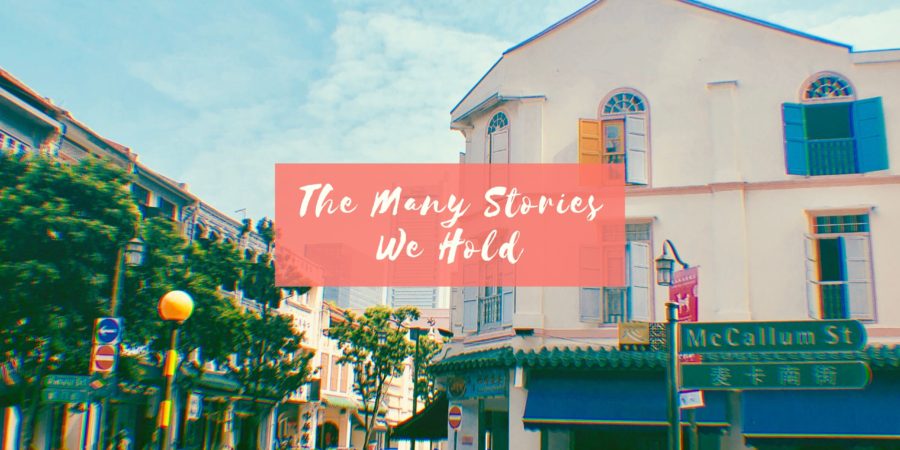I have been thinking (again) about diverse stories.
This post was sparked by a book I saw. It’s based on a Chinese painter that sounds absolutely fascinating – but the story synopsis sounds extremely orientalised. Couple that with Dior’s recent appropriation of the Chinese mamian skirt (which was honestly infuriating mostly because credit was not given to Chinese history and it seemed like Dior was portraying it as their original design) and it feels like Chinese culture tends to be seen in a very one-dimensional way.
Earlier this year, I joined a still-in-the-works project that aims to highlight amazing Chinese women who remain relatively low-profile outside of China. It was an eye-opening experience for me, to be able to dig into my own culture’s history and see how the stereotype of the “demure Chinese woman” is false.
Even in a patriarchal world, women have been carving out their own spaces and being the hero. As far back as the Wei and Jin eras in Chinese history, we have stories of women who defended their hometowns in times of war. We have independent women like the majie, who for reasons of their own chose to undergo the “sor hei” (combing-up) ceremony and remain celibate for the rest of their lives. We have morally grey (but extremely intriguing) women like Zheng Yi Sao. Her name may have been defined by her husband, but it was her strength and savvy that made her one of the most fearsome women pirates of her time.
And it seems rather sad to me that we’ve been missing so many of these stories. I cannot really speak for other cultures but if we just consider the Chinese diaspora, there are over 60 million people of Chinese descent living outside of China today. Yet somehow, one type of story seems to be the most prevalent: the ‘hyphen-American/Western’ stories.
It seems that we either have the stories of people of colour living in Western countries or Westerners living in Asia. Either way, the story becomes about the West – what it’s like to not fit in the West, or what it’s like to be Western in a non-Western story.
The story that stood out to me as centring an American viewpoint even though the book was supposed to be diverse was Crazy Rich Asians. We have an author born in Singapore, we have a story set in Singapore and the protagonist… is a Chinese-American. Somehow, the tie to West remains. I see this in other stories, like the Rick Riordan Presents books; they’re about a multitude of mythic traditions, but as far as I can tell, the protagonists are all American in some form.
Someone mentioned that this is probably because Western readers need some familiarity to entice them to buy the book, but it’s not really an argument I buy. Fantasy, for instance, may have very little that’s familiar to us. And in recent years, I’ve been seeing more translated works like Before The Coffee Gets Cold become popular, showing that readers can connect with books from authors with a non-Western background and topic.
So what gives? How can it be that we have not started drawing on the multitude of diverse stories in Chinese culture? Yes, definitely we need to hear from the diaspora living in the West, but we also need to hear from the Chinese in China, the diaspora outside of China but in Asia, in the Middle East, in the Pacific, and really all around the world. And this applies to all other cultures – I’m writing about Chinese culture mainly because I’m ethnically Chinese and I see this problem first-hand.
Well, I’ve been in a bit of a reading (and writing) slump recently, but I have managed to do something about the Dior appropriation issue that I mentioned earlier. Or rather, I was invited by Hanfugirl to take part in a video talking about this very topic! We come from the viewpoint of Chinese diaspora in South East Asia, which means that we hold different views from mainland Chinese people (who tend to tie this topic to nationalism) and Western-born Chinese (who didn’t seem interested in the topic).
Here is our first episode. If you’ve watched the video and have any thoughts (or topics) that you want us to cover, please let us know! I’d love for this to be a regular thing because it’s a topic that interests me greatly.
P.s. If you’re thinking of writing a story inspired by Chinese culture, by all means, please do! But take your time to do the research and most importantly, make sure that you’re not orientalising Chinese culture. (This applies also to people of Chinese descent – we are capable of orientalising ourselves so don’t think that Chinese DNA magically protects you from this mistake)
I kind of want to talk about the need for people to experiment, have the space to learn from mistakes, but also be able to take in constructive criticism about books because I’ve also made mistakes in this space, but I think that’s a topic for another day.

I hate how much companies force artists (authors, directors etc) to pander to the Western audience. It is primarily towards Americans but as a Brit I feel like it’s quite insulting to the entire Wests intelligence… and then I see how some people speak online and realise why they do it. It’s honestly ridiculous
I feel like people are capable of understanding different cultures, and it would be more enriching to tell more stories! I mean… I had no issues understanding Enid Blyton as a child while also watching Legend of the Condor Heroes! It would probably help foster more understanding between people too (though that’s secondary to the whole “get more interesting, diverse” stories thing)